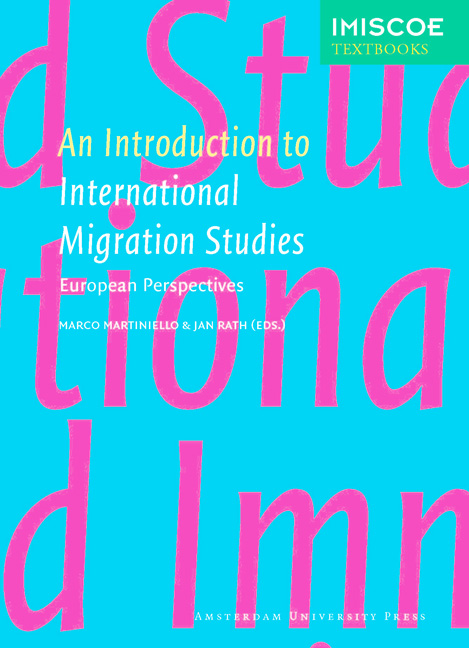5 - Transnational Migration
Published online by Cambridge University Press: 14 January 2021
Summary
Introduction
The transnational perspective has gained a remarkable foothold in migration studies. A wealth of studies have documented that migrants do not necessarily cut their ties with their country of origin. Instead, migrants may live their lives travelling back and forth across state borders (their papers permitting) and form sustained transnational relations with their country of origin. These activities and the current and potential impact of them have attracted growing attention from academics and policymakers alike.
This chapter introduces some of the key empirical, theoretical and methodological discussions in research on migrant transnationalism. Its objective is not to establish the extent to which the transnational optic explains why people move from point A to point B (or beyond). Indeed, cross-border mobility is not the only defining feature of migrant transnationalism, because migrants can be transnational through their networks and practices without physically crossing a state border. Instead, this chapter focuses on the contribution of the transnational perspective, which breaks with the idea of migration and migrant incorporation as a unilinear process. States and societies are not bounded units, according to the analytical framework of the transnational perspective. The perspective invites scholars to view migratory dynamics as embedded in a multi-level transnational field spanning more than one locality. In this way, the transnational optic helps to overcome the dichotomy between countries of origin and those of reception, bridging studies of migration and migrant incorporation (Faist 2004).
A further contribution of the transnational perspective is the focus on migrants as actors in economic, social and political transnational spaces. Understanding migration through an analysis of the agency of the migrants themselves is not unique to studies of migrant transnationalism. Yet, the focus on the role and impact of various types of migrant transnational activities not only gives voice to migrants’ perceptions and practices, but also emphasises that migrant activities are informed by and challenge other actors and policies in transnational spaces. As the transnational perspective underlines, migrant transnationalism draws on and feeds into contemporary processes of globalisation and localisation of identities and agency.
This chapter first discusses the proliferation of the transnational perspective in migration studies. Next it reviews the debates on the scope, degree of representation, durability and newness of migrant transnationalism.
- Type
- Chapter
- Information
- An Introduction to International Migration StudiesEuropean Perspectives, pp. 107 - 130Publisher: Amsterdam University PressPrint publication year: 2012



